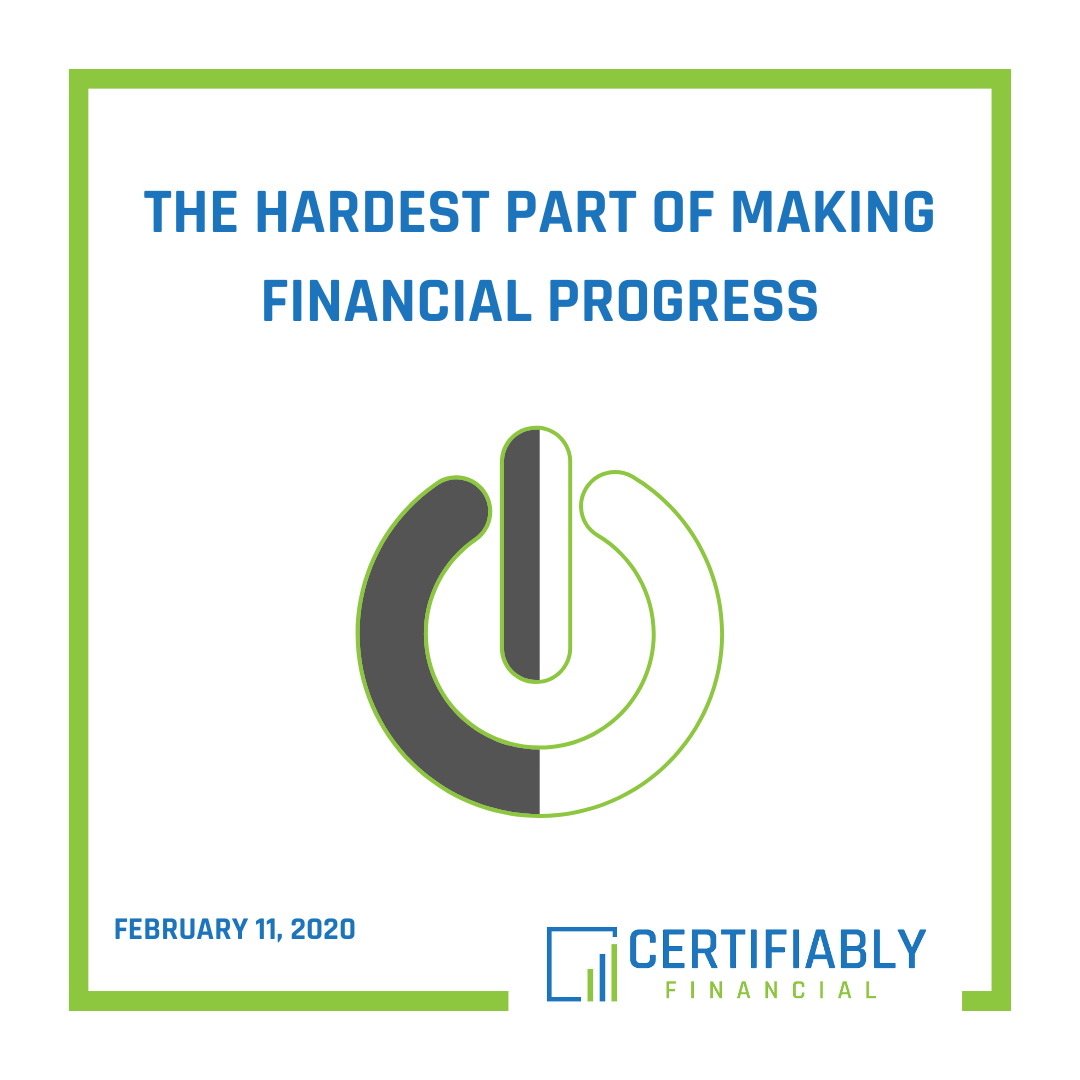I get up at 4 AM three days per week and I don’t use the snooze button. I do have a trick though. I set an alarm 5 minutes before I want to get out of bed and then I actually do get out of bed once my “wake up” alarm goes off. (It’s not cheating.) Most people think I’m crazy for getting up so early and heading to the gym before work and they tell me how hard it is for them to get out of bed in the morning. My response, “The hardest part is making your feet hit the floor.”
Yeah, I know that you don’t care how early I wake up. What I want you to care about is the last sentence of that first paragraph: “The hardest part is making your feet hit the floor.” As James Clear states in his book Atomic Habits, “If you haven’t started, then taking action is more important than finding the best strategy.”
This is a quote that I’ve used multiple times already in my blog posts this year , but I wanted to start with it again because getting started is one of the hardest parts of making financial progress. The second hardest part? Consistency.
Getting Started
The most important piece in making progress towards any goal, including making your personal finances better, is taking action and going from talking about it to doing something about it. Analysis by paralysis about what the most important thing that you need to accomplish is, and how to do it in the best way, is something that stifles a lot of our potential gains. I’m including myself in this conversation. Actually accomplishing something, no matter how important or small it is, is more important.
Getting started involves removing the feeling of being overwhelmed by everything that you think that you need to do (and everything you don’t even know you need to do) and just starting to knock some things out and make progress.
Remember that the name of the game is progress, not perfection. Hopefully, you’ve started making progress by reading my past 5 blog posts that have been aimed at helping you make progress in the new year. I was intentional about writing these at the beginning of the year because I wanted to give examples of things that you could do that would allow you to get started and make progress, and hopefully give you motivation to continue making your financial life better past the beginning of the new year).
A concept that I’ve learned in my personal life and that has helped me to make progress in all areas, including financial, is being in motion vs. taking action. This is another concept that Clear is able to describe much better than I can, so I’ll paraphrase his words.
Being in motion is when you’re learning and planning and creating a plan of action – this doesn’t produce the result you’re looking for. Taking action is when you actually follow through and put that plan in place – this is what actually creates the outcome side of the equation. For example, I could think about writing this article and plan it out and that would be being in motion. Taking action happened once I took the time and actually started writing the article.
If you’ve been stuck in paralysis analysis, then find some easy things that you can do to go from being in motion to taking action.
Consistency
Anyone can do something once – that’s easy. It’s hard to continually do things on a consistent basis – especially things that you don’t particularly enjoy or that you don’t see immediate gratification from. Consistency is the second hardest part of making financial progress.
Consistency is key in personal finance from budgeting to paying down debt to saving more to investing for retirement. You may not see the results of these actions show up immediately, but the greatest financial gains come from being consistent and disciplined. Once you’ve moved from being in motion to taking action and you’ve made progress, it’s important to start training your consistency muscle.
The greatest power of personal finance is found in the effect of compounding which is when your new work (or investment gains) builds on your previous work (or previous gains) and creates an exponential return – consistency is key to this.
If getting started is the hardest part of making financial progress and being consistent is the second hardest part, then you should be happy. Both of these are things that are in your control and that you can take action on today.
Get started.

